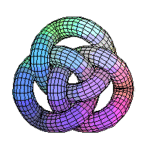Description
Analytic Mindset
 This CE course on the analytic mindset may be applied to our Certificate of Advanced Study in Psychoanalytic Psychotherapy if desired.
This CE course on the analytic mindset may be applied to our Certificate of Advanced Study in Psychoanalytic Psychotherapy if desired.
What is the analytic mindset in psychoanalysis? What mindset is most helpful for potentiating change in the patient? Dr. Stephen Seligman, a proponent of the relational analytic approach, applies the characteristics of nonlinear dynamic systems theories to the analytic process. He discusses the central roles of “calibrated disequilibrium” and “engagement with indeterminacy” in potentiating change. He discusses the analytic mindset, the value of “feeling puzzled” and the challenges of simultaneously paying close attention to what is going on while also fully engaging with the process.
Author and Instructor for Analytic Mindset
The article is authored by Dr. Stephen Seligman. Dr. Seligman is a Training and Supervising Analyst with the San Francisco Center for Psychoanalysis and Psychoanalytic Institute of Northern California; a Clinical Professor of Psychiatry in the Infant-Parent Program of the University of California, San Francisco; and Joint Editor-in-Chief for Psychoanalytic Dialogues: The International Journal of Relational Perspectives.
The article was selected by Dr. Michael J. Gerson, an experienced Psychologist, Psychoanalyst, and Marriage and Family Therapist in California. He has been training clinicians for over 30 years, both in his private practice, in community counseling centers, and as a professor of Psychology in graduate programs. He is a professor emeritus of the Graduate School of Psychology at California Lutheran University and is renowned for his depth of understanding of the therapeutic process and for his keen ability to translate complex concepts into terms that are clear and that can be applied to the clinician’s own work.
Please contact the Director (mgersonphd@psychstudies.net) if you would like help in accessing the article.
CE Credits for Analytic Mindset
This course earns 2 continuing education credits. The Institute of Advanced Psychological Studies is approved by the American Psychological Association to sponsor continuing education for psychologists. The Institute of Advanced Psychological Studies maintains responsibility for this program and its content.
![]()
Conflicts of Interest or Commercial Support
There is no commercial support or other potential conflicts of interest for this program, presentation, or instructor.
Commitment to Diversity and Accessibility
We are committed to respecting diversity in all of its forms, including age, gender, gender identity, sexual orientation, race, ethnicity, culture, national origin, language, socioeconomic status, religion, and disability. We also strive to make all of our activities accessible to individuals with special needs or disabilities. Please contact the Director at mgersonphd@psychstudies.net if you ever have any questions or concerns regarding any of our programs.
Sources and Relevance
Our programs and teaching methods are supported by current, empirically-based scientific literature, and are designed to provide continuing education that is relevant to psychological practice, education, and/or research, so that psychologists may maintain and expand their ability to serve the public and contribute to the profession.
Target Audience for Analytic Mindset
Our courses are designed for postdoctoral-level psychologists; this course is an intermediate-level course. All mental health professionals, educators, and researchers have a variety of educational backgrounds and needs—if you have any questions about whether this course could benefit you and/or would be appropriate for your level of training, please do not hesitate to contact us. You may contact the Director directly at mgersonphd@psychstudies.net with any questions or concerns.
Course Schedule
This course will be available to you 24 hours a day, 7 days a week, so you will be able pace yourself in a manner that is comfortable for you.
Cost and Refund/Cancellation Policy
The cost of the course is noted below. There are no additional fees. If you do not subscribe to the journal or belong to an organization that does, please contact the Director (mgersonphd@psychstudies.net) for help in accessing the article. Your satisfaction is important to us. If you are not satisfied with a course, please let us know immediately—we will cancel your order and gladly offer you a full refund.
Course Format Summary for Analytic Mindset
The course consists of reading a journal article available through the publisher (Seligman, S. [2014]. Paying attention and feeling puzzled: The analytic mindset as an agent of therapeutic change. Psychoanalytic Dialogues, 24, 648-662. doi: 10.1080/10481885.2014.970966) and passing an online multiple choice test. A Certificate of Completion for the course will follow. Please contact the Director for help in accessing the article (mgersonphd@psychstudies.net). The course earns 2 CE credits. Intermediate level. This course may be applied to the Certificate of Advanced Study in Psychoanalytic Psychotherapy if desired. $20.














